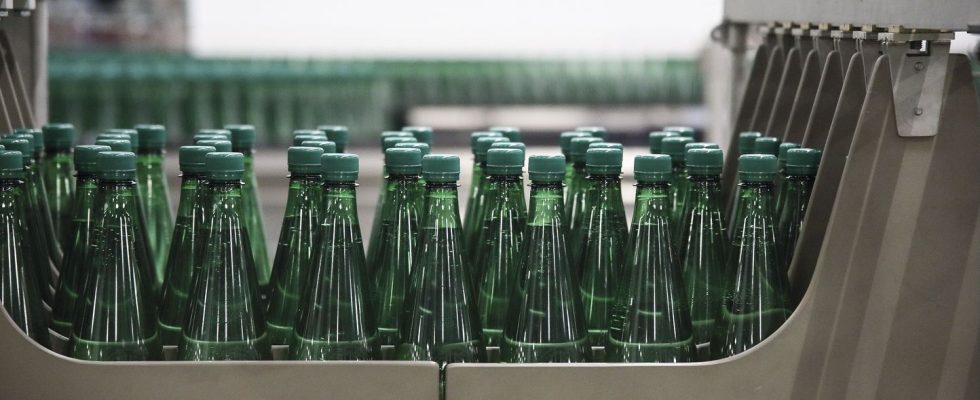The last straw? The revelations keep coming concerning the health problems of natural mineral waters marketed by the Nestlé group. A document from the National Agency for Food, Environmental and Occupational Health Safety (ANSES) revealed by Franceinfo and The world concludes that there is an “insufficient level of confidence” to “guarantee the health quality of finished products” from Nestlé.
Already in January, the group admitted to having used prohibited purification techniques on their natural mineral waters. An investigation of World and Radio France showed that a third of French brands marketing this type of bottled water had also purified their water in the same way.
Multiple contaminations
Submitted last October to the government, the report by ANSES experts is clear: the level of confidence in the production process of these so-called natural mineral waters is “insufficient” to “guarantee the health quality of the finished products”. And this in the Grand-Est (Hépar, Vittel and Contrex), as in Occitanie (Perrier).
The director of ARS Occitanie, Didier Jaffre, requested this expertise in June 2023, given the “vulnerability” of water resources at the Vergèze site, which produces Perrier. A welcome request in view of the conclusions of the expertise, which show regular microbiological contamination on several wells.
The famous PFAS, these so-called eternal pollutants, are also present, alongside other chemical contaminants, which can sometimes exceed the regulatory threshold. Added to this list are “multiple reports of contamination of fecal origin”, as well as micropollutants and “the absence of parameters allowing the monitoring of viral contamination of water”.
What are the consequences on production?
Based on these elements, the experts behind the report make “no recommendations” regarding bottled water. Indeed, these non-conformities “should not lead to the production of bottled water in order to guarantee the health quality of the natural mineral waters produced”. This means that the springs concerned should no longer be used to produce natural mineral water.
Which questions the very continuity of this production via these factories. Because the regulations on natural mineral waters do not allow them to be disinfected, based on the principle that they must come from preserved sources, unlike “waters made drinkable by treatment”. With these treatments, as specified Franceinfo“the regulations do not allow Nestlé to continue to market its products under the name natural mineral water, but without them, the health quality of its waters does not seem to be guaranteed”.
For its part, the firm indicates that the quality of its mineral waters “complies with regulations”.

